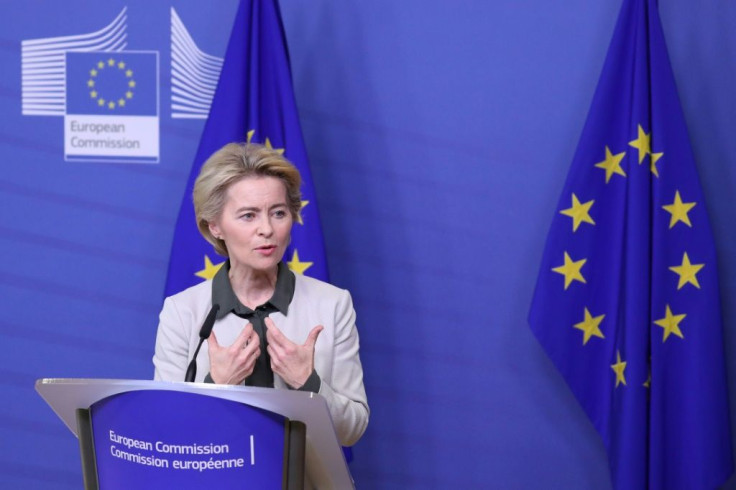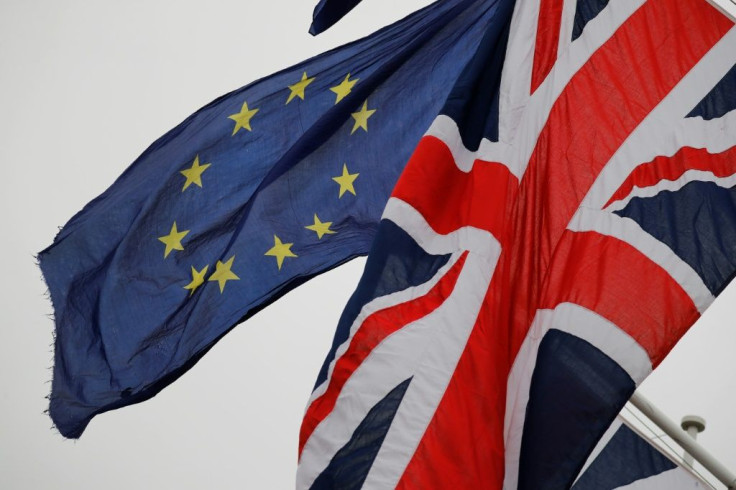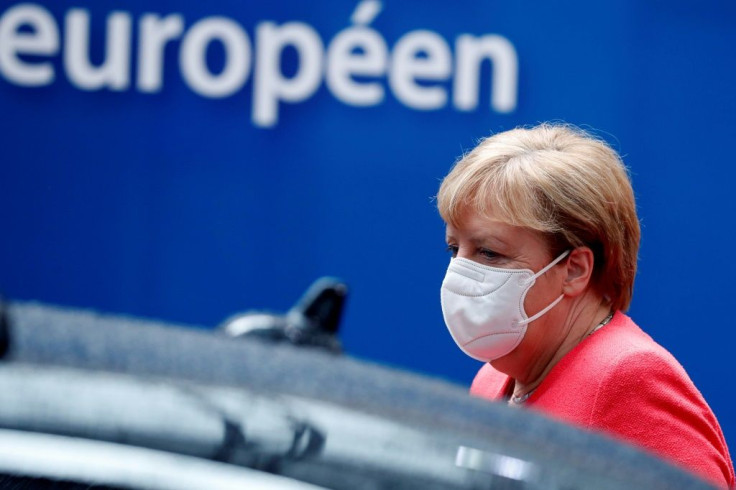UK Looks To EU To Break Brexit Talks Impasse
Britain and the European Union on Friday said post-Brexit trade talks remained deadlocked on key areas, as London urged Brussels to give ground to avoid a damaging "no-deal" at the end of the year.
Both sides have pinpointed a European summit on October 15 as the latest agreement could be reached for it to be ratified in time for it take effect at the end of December.
But the EU's chief negotiator Michel Barnier and his UK counterpart David Frost complained of a continued gulf between the two sides in crucial areas such as competition rules and fishing rights.
After the ninth round of talks in the tortuous process broke up in Brussels, with renewed commitments to find a way out of the impasse, there was clear acknowledgement the clock was ticking.

"To reach an agreement, these divergences must necessarily be overcome over the next weeks," said Barnier.
Despite indicating there were signs of agreement in a number of areas, Frost warned disagreements over competition rules and fishing may be "impossible" to overcome without the EU giving ground.
"I am concerned that there is very little time now to resolve these issues ahead of the European Council on October 15," he said.
Next steps may be determined on Saturday in a video conference between European Commission chief Ursula von der Leyen and Britain's Prime Minister Boris Johnson.

Johnson -- a key figure in the lengthy and divisive process to take Britain out of the bloc -- said it was up to Brussels to agree to terms to unblock a deal.
"It's all there, it's just up to them," he told the BBC, urging the EU to bow to common sense.
UK and EU officials said the two leaders would take stock of progress made in the latest round of talks even as von der Leyen again warned against a deal "at any price".
"This is so difficult, but overall where there is a will there is a way. I think we should intensify the negotiations," she told reporters after meeting leaders of the 27-member bloc.

German Chancellor Angela Merkel, who meets Barnier on Monday, said she believed a deal was still possible, though she said that the next days would be crucial.
"As long as negotiations continue, I am optimistic," she said. But she could "not announce a breakthrough as a matter of course either. That will be decided in the next few days".
Britain and Europe still disagree on how to assign fishing rights in UK waters and how to maintain a so-called level playing field in business and state subsidy regulations.
Diplomats say the British side has been pushing for the negotiations to head into a "tunnel" -- diplomatic jargon for a closed door, secretive dash to the finish line, allowing negotiators to make concessions without public pressure.
But European officials say the time is not right, as they are yet to be convinced that Johnson can be trusted to budge. "We're not there yet, we're not coming in to land, we're not at the tunnel," one said.
The von der Leyen and Johnson call also follows the launch of legal action by Brussels in response to the British government's attempt to overturn parts of the Brexit withdrawal agreement.
On Tuesday, British MPs backed a bill to regulate the UK's internal market from January 1, when Britain completes its post-Brexit transition period and leaves the EU single market and customs union.
Johnson has pushed on with the legislation -- despite concerns in his own party and a warning from Washington that it puts Irish peace at risk.
The row over the bill has not scuppered the trade talks, but increased doubts among the Europeans that Johnson is pursuing the deal.
© Copyright AFP {{Year}}. All rights reserved.





















